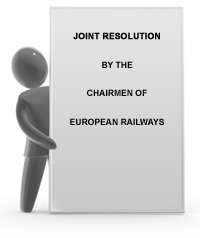Presentation
A Real Train to Speed-up and Improve LL Brake Block Testing in Operations
In June 2009 everybody was aware, that solving the problem of equivalent conicity is essential for cost-effective noise reduction of freight wagons.
Noise reduction is a challenge for freight business
- Rail noise is on top of the political agenda of the EC (noise related track access charging schemes)
- Noise reduction at the source (wheel-rail-contact) has the best cost/benefit ratio and avoids high investments and maintenance cost for infrastructure managers (high noise barriers)
- To achieve a considerable noise reduction in freight traffic, retrofitting of existing wagons is
necessary - Retrofitting must not jeopardize the intermodal competitiveness of rail freight
- K brake blocks are the solution for new wagons, but are not economically feasible for the retrofitting of the existing fleet at all
LL brake blocks are proving to be a promising cost-effective noise-reducing measure for existing freight wagons, but …
- LL brake blocks still require further improvement and can not currently be used directly on a large scale in Europe
- Further well documented field tests on a larger scale with various usage profiles are necessary in order to solve the problem of “equivalent conicity” and to better estimate the LCC of the system
In June 2009 the decision was taken to launch a “Study on Equivalent Conicity” and to follow the idea of the EuropeTrain.
Only a successful conclusion of the "Study on Equivalent Conicity" avoids the wasting of all UIC member’s money spent so far on the issue
In September 2009 24 railways and the sector organisations CER, EIM and UIC signed the joint resolution to start the preparation of the EuropeTrain
 In the 9th meeting of the Directors General of the European Railways in Berlin on 05.09.09 24 of 28 present railways and the organisations CER, EIM and UIC signed the Joint Resolution of the Chairmen of the European Rail Operators on “’Europe Train’ to speed up and improve LL brake block testing in operations”, thus showing their clear will to support a successful development of LL brake blocks as a means for cost-effective noise reduction at the source.
In the 9th meeting of the Directors General of the European Railways in Berlin on 05.09.09 24 of 28 present railways and the organisations CER, EIM and UIC signed the Joint Resolution of the Chairmen of the European Rail Operators on “’Europe Train’ to speed up and improve LL brake block testing in operations”, thus showing their clear will to support a successful development of LL brake blocks as a means for cost-effective noise reduction at the source.
This broad support gave a very good basis to start the preparatory work on the EuropeTrain project.
EuropeTrain: The basic concept
- Train with about 30 representative wagons which runs throughout Europe only for the inservice testing of LL brake blocks
- Duration of testing at least one year including all climatic conditions Mileage to be achieved at least 200.000 km
- All operational conditions relevant for Europe have to be covered, e.g. running on different gradients with different operational modes, arctic winter areas, high temperature zones
